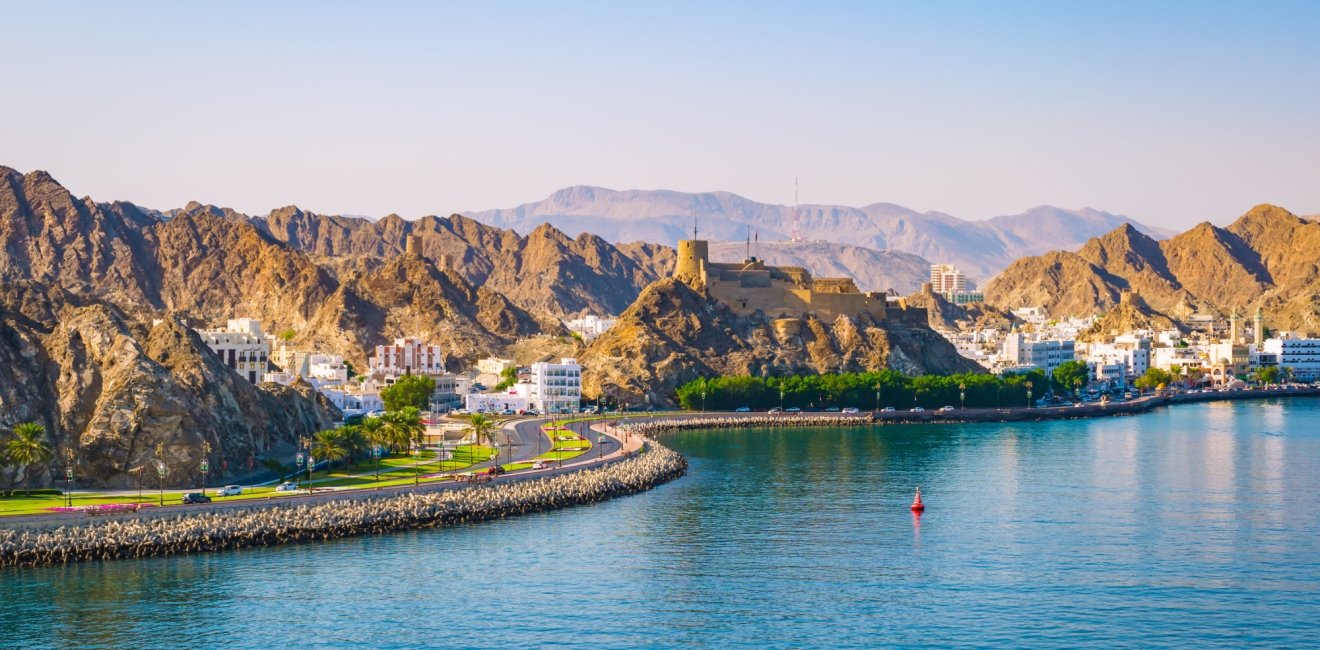
A blog of the Middle East Women's Initiative
During times of climate-related crises, women are usually expected to set their jobs and interests aside to prioritize their families.
There is a certain sense of care and love for the environment that I’ve noticed among Omani women throughout my life, starting with my mother. I would always notice my mother’s constant admiration of Oman's beauty, be it on her mundane drives between the purple mountains and turquoise sea that frame Muscat, or when she would show me pictures of her excursions in the green and luscious mountains of Salalah, or her hikes between the many waterfalls of Wadi Mibam. Personally, I know that my love for the environment stems from my mother’s own fondness of Oman’s natural beauty.
At the mere age of nine, that love soon turned into the decision to dedicate my life to working for the environment. Feeling inspired, I discovered the person leading the environmental scene in Oman is a woman named Tania al-Said, who instantly became a heroine of mine. As the years went on, my passion has grown through education, experiencing the effects of climate change firsthand, and especially through seeing Omani women use their voices and passion to advocate on important matters relating to the environment. I knew I had to join them.
In Oman, extreme weather events have become more frequent as climate change escalated. Omanis suffer, and will continue to do so, from the effects of climate change if education and expertise on the topic are not appropriately addressed. Unfortunately, Omani women, similar to women everywhere, are among the most affected by climate change. For example, rising sea levels and increasingly frequent cyclones will lead to greater floods, which increases the likelihood of Omani women drowning, as most do not know how to swim.
Droughts, cyclones, and desertification affect Omani women’s livelihoods, especially in less urban regions. In 2021, Cyclone Shaheen devastated numerous cities like al-Batinah and al-Dakhiliyah, and women, particularly those of a lower income, suffered the most. Not only did they lose their homes and jobs, but some women had to also sell their personal possessions, such as heirloom jewelry, to support and take care of their families. During times of climate-related crises, women are usually expected to set their jobs and interests aside to prioritize their families.
However, there is hope. As natural disasters increased in frequency in Oman, so did environmental and climate advocacy within civil society, with women at the forefront. Two exceptional women come to mind when thinking of such leading voices: Sayyida Tania al-Said, who I had mentioned earlier, is the President of Environment Society of Oman (ESO), a conservationist NGO, and Rumaitha al-Busaidi, a climate activist and Director of ESO. These women have contributed to much of the awareness on climate change and environmental conservation among communities in Oman.
Both women represent a linear and generational commitment to environmental stewardship. Sayyida Tania represents the onset of Omani women who take initiative and voice their concerns for the environment, and Rumaitha represents my generation’s devotion and courage in prioritizing the environment and female engagement in the field. They have both inspired and paved the way for young Omani women like myself to pursue a career in this field. Their impact can be seen within Oman’s corporate and NGO world and through education and advocacy, where women outnumber men working on these issues.
Though climate change is a daunting reality, and one that is often overlooked in a region severely affected by it, I’m proud to know that women are leading the matter in Oman. While they lead in the field, Omani men still surpass them in government positions, especially in positions of authority. However, the future looks bright as more women are taking on leadership and government roles every year and can thus institutionalize change.
Omani women must continue with this momentum and use their voices, knowledge, and vigor to advocate for a sustainable future for the coming generations to prosper. By doing so, more young girls will begin to realize that their aspirations are within reach. I can attest to that personally, for if it was not for my mother’s love for Oman’s environment and discovering Sayyida Tania as the Omani environmental spokesperson as a child, I wouldn’t have discovered and pursued my passion.
Author


Middle East Program
The Wilson Center’s Middle East Program serves as a crucial resource for the policymaking community and beyond, providing analyses and research that helps inform US foreign policymaking, stimulates public debate, and expands knowledge about issues in the wider Middle East and North Africa (MENA) region. Read more


Middle East Women's Initiative
The Middle East Women's Initiative (MEWI) promotes the empowerment of women in the region through an open and inclusive dialogue with women leaders from the Middle East and continuous research. Read more

Explore More in Enheduanna
Browse Enheduanna
Women are the Catalysts for Change in Lebanon

How Education Can Empower Young Women in MENA


